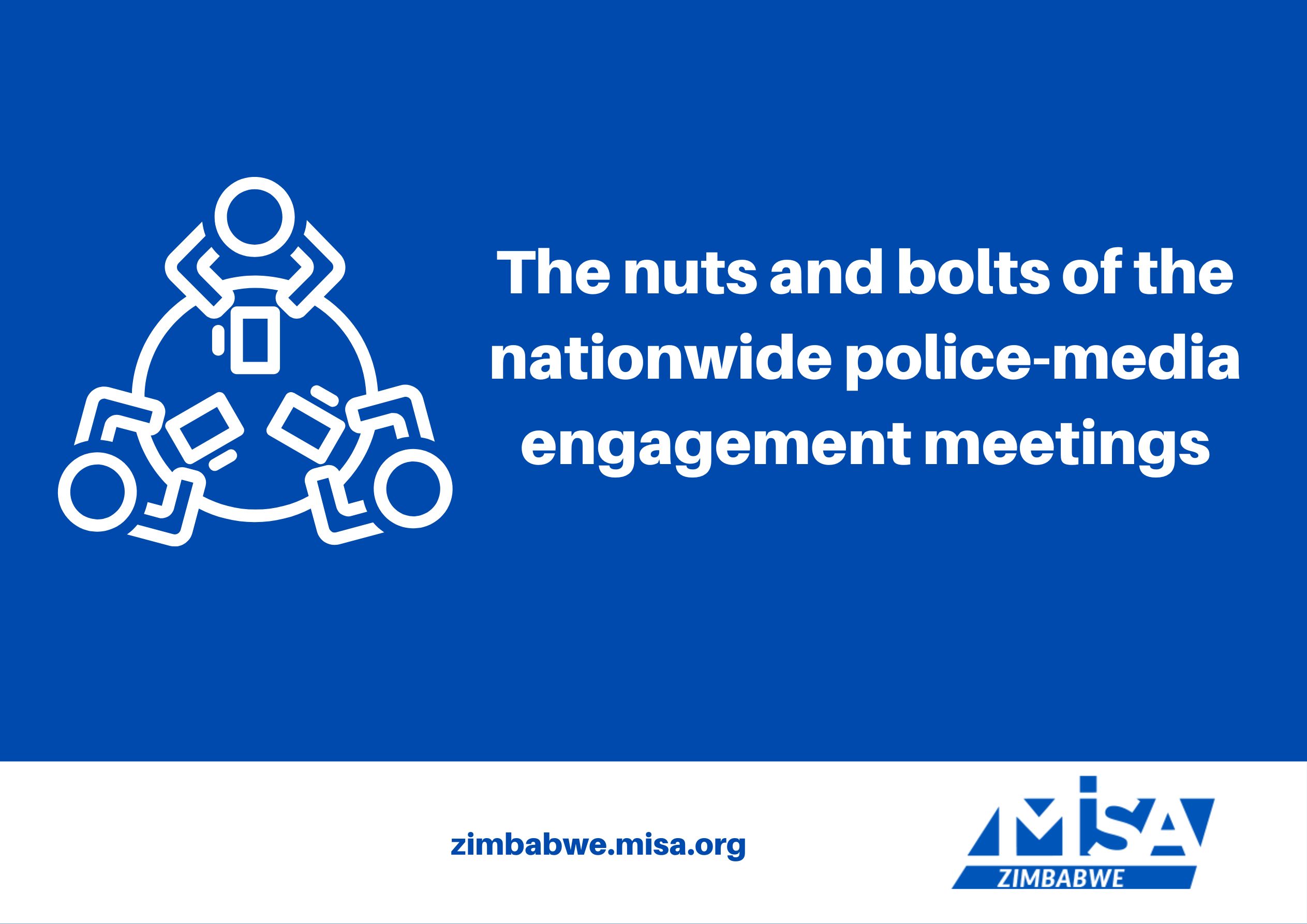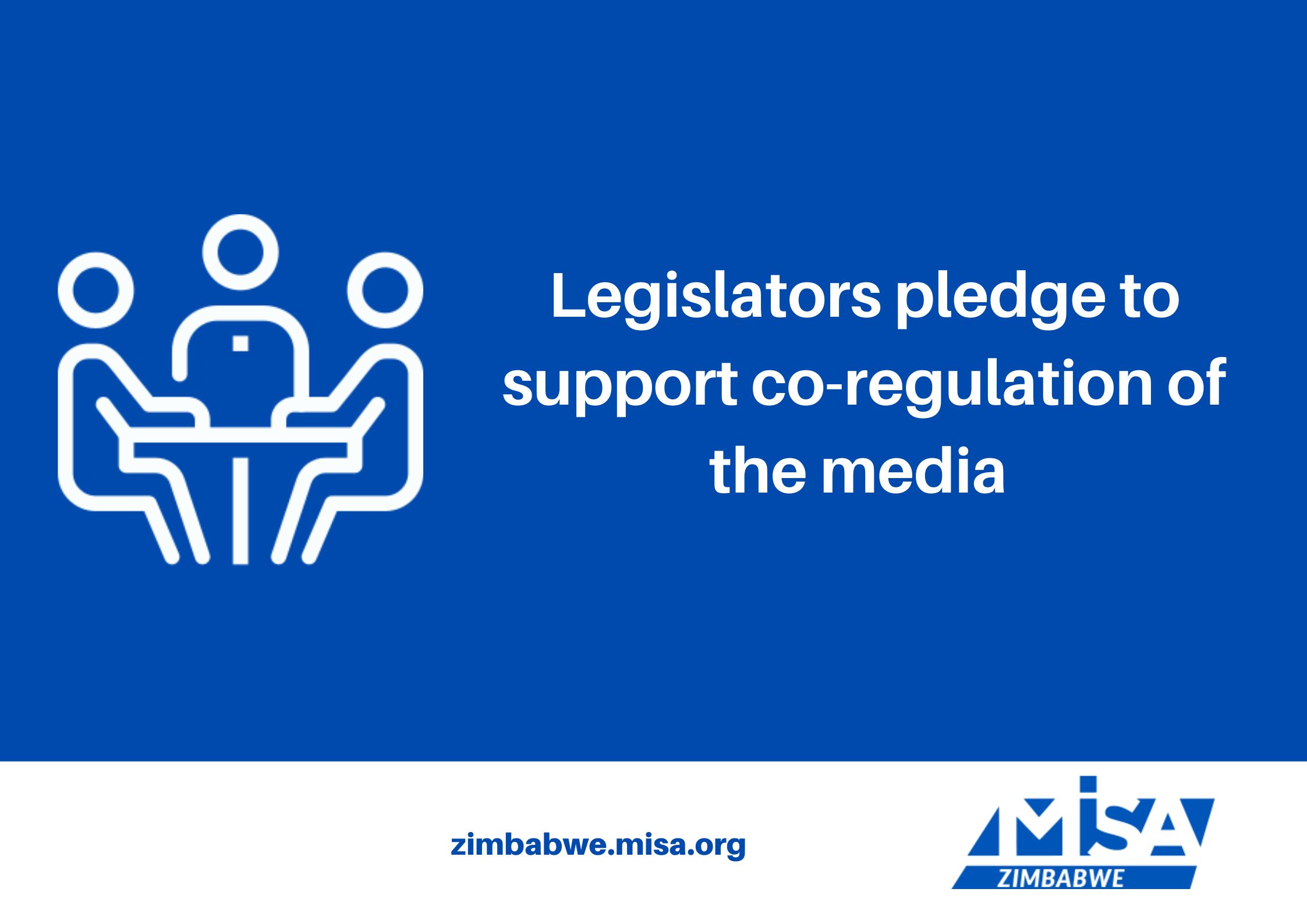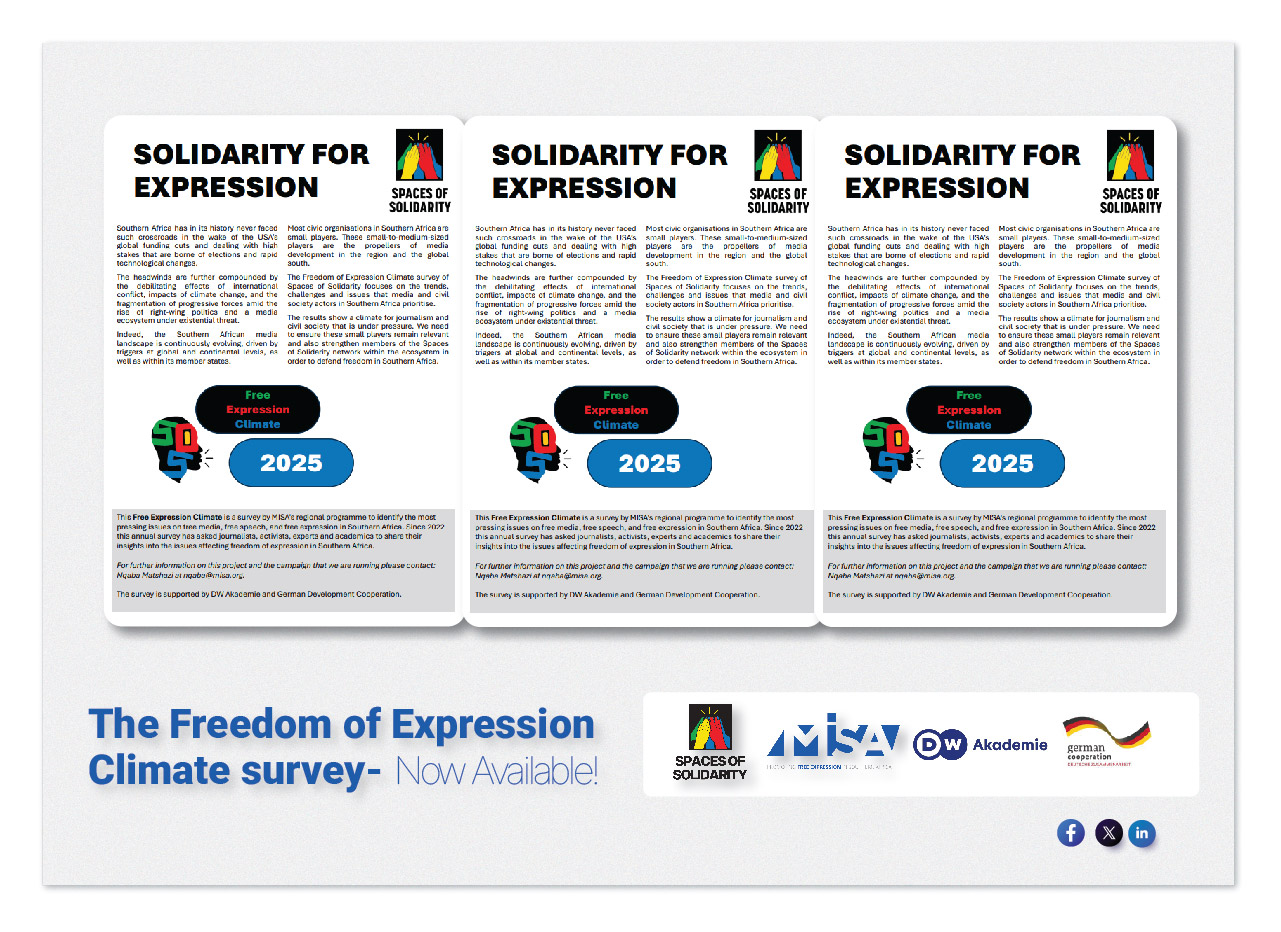The recently concluded nationwide police-media engagement meetings spearheaded by MISA Zimbabwe in partnership with its alliance members under the auspices of the Media Alliance of Zimbabwe MAZ), are firmly rooted and anchored on the Police Media Action Plan of December 2017.
The Action Plan was the culmination of extensive engagements, dating back to September 2016, with senior police officers, represented by the then National Police Spokesperson, Senior Assistant Commissioner Charity Charamba, and media representative organisations led by MISA Zimbabwe Trustee Cris Chinaka.
In that regard, it was agreed that regular engagement meetings should occur between the media and the police.
As part of efforts to improve professional working relations, the media representative organisations and the police, agreed and resolved, among other recommendations that:
- A safe working environment be created for journalists through training of police officers on the role of journalists and the media.
- Any form of assault on journalists during the lawful performance of their duties should be reported and dealt with by the police as enshrined in their mandate (detecting, investigating and preventing crime) and the outcome of report communicated.
- It was also agreed that journalists approach and introduce themselves to ground commanders whenever there are public disorder situations and in cases where they are aggrieved.
- Where police have concerns with the media, they should engage professional bodies such as MISA, ZUJ or VMCZ to encourage professionalism and accountability.
- The media pledged that it is committed to ensure fair, accurate and balanced reporting and to correct inaccurate stories sincerely and without prejudice.
It is against this background that MISA Zimbabwe on 8 February 2023, commenced the nationwide engagement meetings to popularise the Action Plan as well as deliberate on the safety of journalists and media workers as the country heads for the 2023 elections.
These meetings were held in Gwanda, Bulawayo, Hwange, Gweru, Kwekwe, Chinhoyi, Masvingo, Mutare, Bindura, Marondera and Harare.
This was in response to media freedom violations that, at times involved the unlawful assaults and arrests of journalists by the police during public gatherings and protests and at political party meetings or rallies.
Police provincial commanders and district commanders attended the meetings. Journalists from both the private and public media attended the meetings, during which they raised their professional concerns with the police.
In turn, the police representatives also highlighted some cases involving unprofessional conduct on the part of the media and how this can be improved to cement professional working relations.
Both the police and the media derive their professional mandates from the Constitution, which should be adhered to, and have, in some instances, worked well together in combating crime.
However, there are areas of conflict that have compromised journalists’ safety through unlawful arrests and harassment.
For instance, journalists cited the Cyber and Data Protection Act as the legislation being used to force them to delete footage they would have taken on their cameras or phones. Police have also in the past arrested journalists to force them to reveal their sources.
The safety of journalists is at times also compromised during incidents of public order administration as police indiscriminately apply force to disperse crowds with journalists being caught in the crossfire.
Overall, the nationwide meetings, among others, mutually resolved to:
- Allow journalists with expired press cards to work without hindrance until the Zimbabwe Media Commission completes its accreditation processes.
- Intensify training for both journalists and police officers on how to handle conflict situations.
- Respect the protection of journalistic sources by not forcing journalists to reveal their sources through arrests.
- Police acquaint themselves with human rights standards, while journalists should also be aware of laws governing protected areas and other laws, such as the Maintenance of Peace and Order Act (MOPA), that may be sources of conflict.
- That political parties be engaged as they were also at the forefront of media freedom violations.
- Intensify update meetings between police and the media, with the MISA Zimbabwe Harare Advocacy Committee being invited to police briefing meetings every Wednesday.
In turn, the media pledged to be professional and to be held accountable through established channels.
The meetings concluded in Harare with police declaring that ‘let by-gones be by-gones’ and apologised for previous violations against the media. National Police Spokesperson Assistant Commissioner Paul Nyathi, urged the media and police to promote dialogue and professionalism to ensure that mistakes of the past do not recur.
Resultantly, MISA Zimbabwe is happy to report that following the meetings, no reports have been recorded of media freedom violations involving the police and political parties.
This also comes on the backdrop of the one-on-one lobby meetings held this year by MISA Zimbabwe with the country’s major political parties, ruling Zanu PF, Citizens Coalition for Change and MDC-T.
It is, therefore, our hope that this situation obtains ahead of and beyond the 2023 elections as the country continues with its media reforms agenda, of which the right to the exercise and enjoyment of media freedom is critical for socio-economic stability and prosperity.













